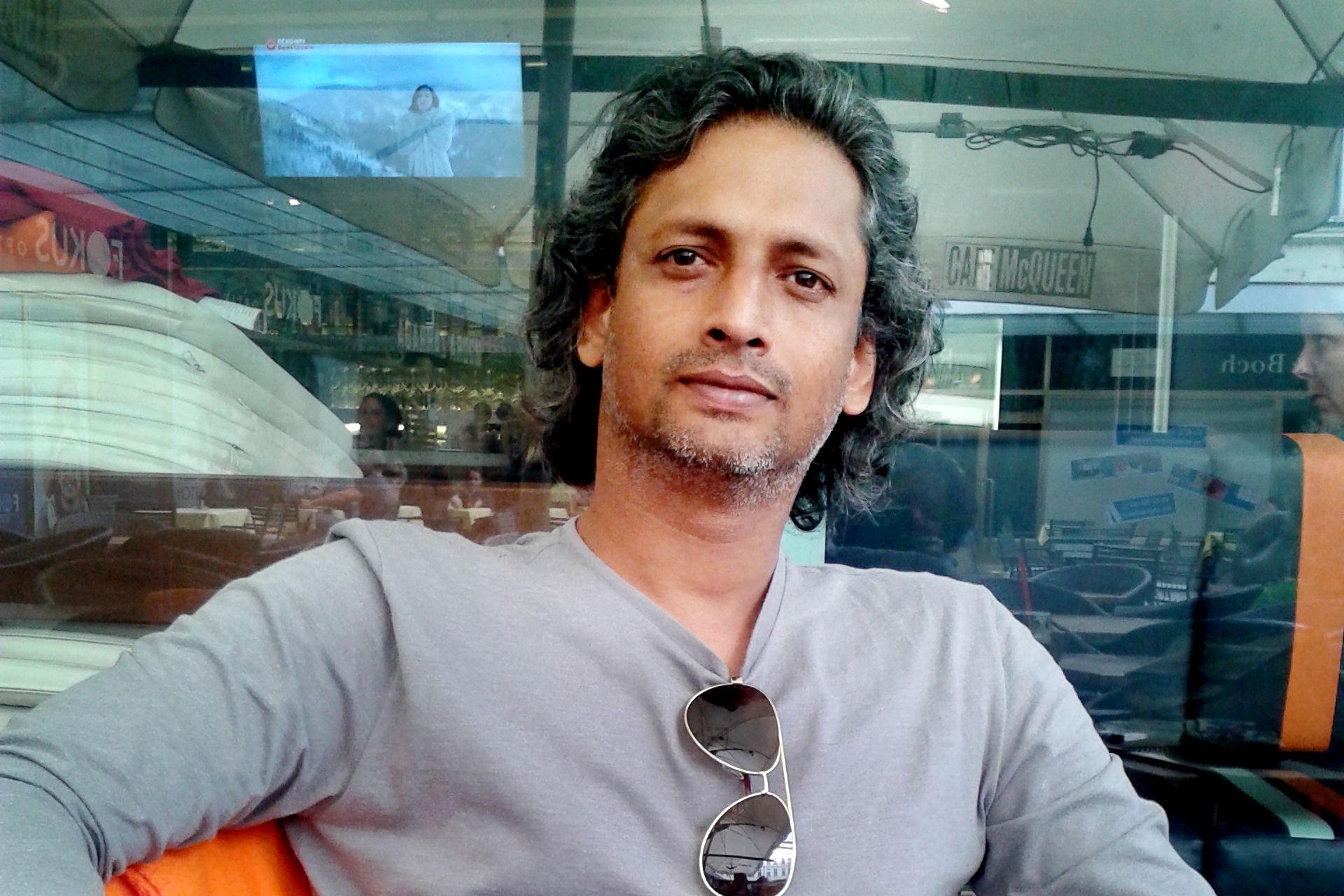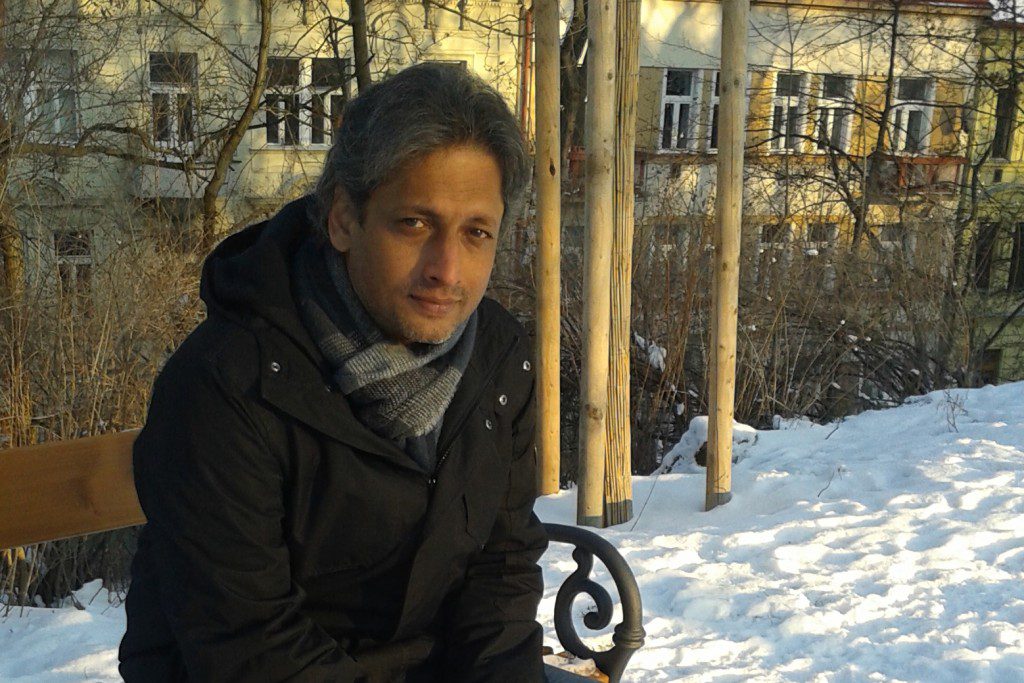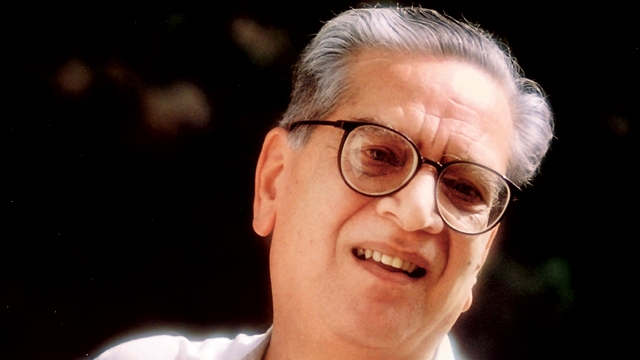Screenwriter Bijesh Jayarajan is a well-known personality in Indian theater circle, because of his groundbreaking works with groups like Act One and Jan Natya Manch. He has also written the Gafla (featured in the Guardian’s top 10 films of the Times BFI London Film Festival, 2006), Summer 2007 and Yudh. Bijesh has a very distinctive writing style, which clearly focus on working against prejudices and stereotypes of Society. Recently, he did the screenplay (along with Suresh Nair) for movie “Te3n”, which got released last week.
Team Bollywoodirect got the chance to talk with Bijesh about his journey, writing style and much more.
Let’s start from the very beginning. You grew up in Jamshedpur and went to Delhi for higher studies. From where your interest grew towards cinema. How did it all start? Please tell us about your journey.
Well, my interest in Cinema started much later in life. While growing up I was more interested in Theatre and that came about from watching Jatras and other Plays performed in Clubs, in Jamshedpur. I worked in school plays and club plays, completely enamored by the inexplicable power the actors performing live in front of an audience had over them. I wanted to be a theatre director then. Even when I reached Delhi to do my higher studies, I joined Act One and did theatre. In those days, the cultural centers of various countries used to screen movies from their countries.
It was only after seeing a retrospective of Fellini films in Delhi that I got truly interested in Cinema. Here was a filmmaker who opened a hitherto unknown facet of cinema to me, the cinema of polemics combined with visual flamboyance. And then came a retrospective of Kurosawa films and I was completely blown and found a reflection of all those aspects I thought were my own stylistic concerns, in these movies. Thus, I started to dream of becoming a filmmaker.
On IMDB, it states about you that, “Your formative years spent in feudal, caste plagued Bihar defined your artistic outlook and politics, which are an integral part of your writing”. Do you think the same?
Yes, those years spent straddling two diverse worlds has had an impact on my artistic thought process. I was living a cocooned social existence in a TATA’s colony and yet because I lived next to a tribal village, I got exposed to many ugly facets of society. It had an indelible impact on me.
I had seen the exploitative mechanics of caste, religion, class all function unabashedly in front of my eyes. So somehow my personal proclivities are always on the side of the marginalized and downtrodden. I want to bring out their struggles, their quest for human dignity and their dreams. Since there are not many avenues to do the same in Hindi Cinema, one learnt to approach existing writing jobs with a clear focus on working against prejudices and stereotypes.
You worked with theatre groups like Act One and Jan Natya Manch. What was the impact of these groups on your writing and characters?
Working with ACT ONE and JAN NATYA MANCH, one learnt the importance of debate and engagement. The focus was never on being purely subjective but to analyze situations and characters in a historical and socio-economic context. When we talk of a theatre of social change, it becomes important to give all of the characters, even those who we disagree with and hate, their own voices and justifications and arrive at a common position of social progress and benefit.
So in my writing and characters, I always look for the one streak of goodness or evil that all of us carry within us. Circumstances bring out the bad or the good from us. So given a chance the worst of us can find some sense of dignity in our condition and the best of us can reach a point of complete disregard for human dignity and do something regrettable. As a writer the more I exist in that in between dynamic state of mobility the more the characters will be of value to the audience.
You captured attention with your writing in Sammer Hanchate’s Gafla. How important was “Gafla” for your writing career actually, in your eyes?
From a career and commercial standpoint, the film did absolutely nothing for me. It was a great experience writing it, the team was great, the movie also turned out quite good. However, there was no real exposure as the film hardly got a decent release. The lack of stars maybe. However, I think it was a great learning experience in writing a biographical film which inherently was not dramatic. Also, it was about a character who had been demonized by the media and society at large. Exploring how one could present a person’s life in shades of gray, without excessively celebrating or crucifying him. That was also a great learning from the writing of the film.
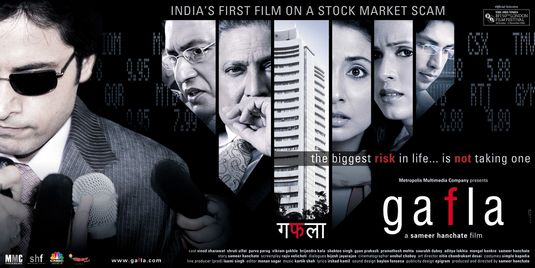
You have also spent a quite good amount of time doing theatre plays. What are the major differences you have experienced, when we compare to the writing for Movies?
I have not really written a lot for theatre, as one was a director. Well in many ways since most movies in India are like visual radio plays, cannot say that the writing process craft wise is very different. However, the theatre I did was more experimental and cutting edge and the word was not the most important thing in them. So in many ways, the writing for movies and TV, because of the budgets involved, is less experimental.
Te3n is your latest work and it just got released. Tell us little about the storyline.
Te3n is a movie that is adapted from a Korean movie, Montage. The original producers are co-producers on Te3n also. Montage and Te3n work on a level of pure screenplay craft. A deliberate sleight of hand, with clues that are latent and invites the viewer to see it a second time to see how the puzzle was constructed. The story talks about a Grandfather, who lost his granddaughter to a kidnapping gone wrong many years ago.
The perpetrators were never caught and the man has just not moved on. The cop investigating the case had also been devastated by the failure and had turned to god to find peace. Now in the present, a similar kidnapping happens, and all these characters get a second chance to get justice, redeem themselves and this time stop the victim from ending up dead.
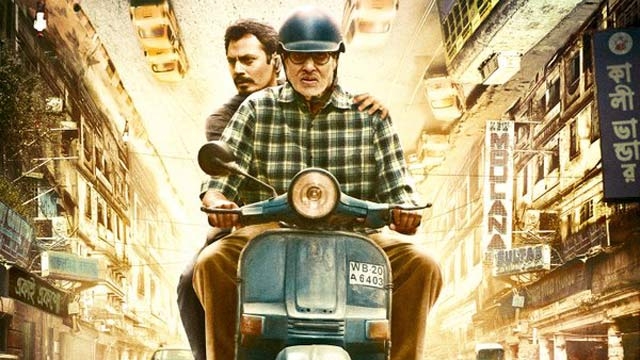
Your characters always have some attributes which can only be created with realistic observations . Are your characters comes from your surrounding or they are complete fiction.
My characters come from my surroundings which in a way might be a problem. Our surroundings are unique to our social and family circumstances. So depending on one’s upbringing, schooling peers one might find themselves surrounded by unique characters who might seem completely alien to someone else from a different habitat. For example, the devious and mercenary characters that inhabit the families in the TV shows are characters I have never seen, so are alien to me.
Neither have I read about them in the progressive Hindi/Vernacular literature that I devoured while growing up. So I guess as a writer it becomes imperative to mix and match experience with some element of universality. It’s like cooking up a potion and hoping the concoction of character background, dynamics, contradictions, physicality, gravitas, chinks and wants all become universally accepted. Believability is a what the actor imbues. No one knows whether Gabbar Singh is real…but the potion was believable.
Writer, Director, and Actor – all of them have a different perspective about the character and all want to imprint their mark on the character. What is your view on this?
As a writer, once we finish imagining and constructing the character, the bigger battle is to ensure that the character is playing out in the script. There is a rule that is taught in script writing schools. Characterization is for actors, for writers’ character is defined by the choices they make in the script. So as a writer we try to present choices to our characters at every stage and with the choices they make the script moves ahead. So scripting and play out of character are interlinked. And once the script is over, primarily the writer’s vision of the character is made.
Then it is open to interpretation by actors and directors. In rare cases, the interpretations by the director or the actor may be at variance with the writer’s construct. In such cases, it becomes very critical to iron out the jagged edges and cracks that might get created. Most cases, however, the reason why people have liked a script is because of the total package so there is not much structural variance.
Your story can inspire many budding writers. What will be the realistic approach you will suggest to the newcomers?
The realistic approach to a career in script writing is the boring.. ‘Keep Writing’ advice. There is no replacement for writing and editing and then writing again. Honing your craft and your skills. However, the one really important thing that I would advise newcomers is that always try and find your own voice. The craft and skills can be learned or bought. But there is no substitute for your unique voice. Sometimes your unique voice may take time in getting appreciated yet, in the long run, that is what you will be known for.
Also, Read I Am Not Afraid Of Long Takes Anymore – Jim Sarbh

